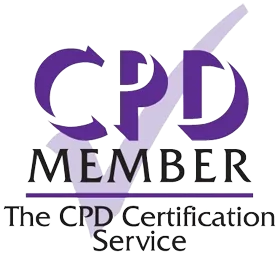29 Mar 2025
Recommended
Minimum 44 mins
Course
Access
Certification
Voiceover

The Bipolar Disorder Awareness course is designed for healthcare professionals to enhance their understanding of bipolar disorder, a complex mental health condition characterised by alternating episodes of mania, hypomania, and depression. This course focuses on the accurate diagnosis, effective management, and holistic support required to improve the quality of life for individuals affected by this condition.
The training covers the clinical presentation, underlying causes, and current treatment approaches, including pharmacological, psychotherapeutic, and lifestyle interventions. It emphasises distinguishing bipolar disorder from other psychiatric conditions and explores the ethical and legal considerations surrounding its management. The course also highlights the importance of family involvement, community support, and relapse prevention strategies in achieving long-term stability.
 £20
£20
Learning Outcomes.
By the end of this course,participants will be able:
To understand the clinical features and pathophysiology of bipolar disorder and their impact on individuals.
To accurately diagnose bipolar disorder using DSM-5 and ICD-10 criteria while distinguishing it from other psychiatric conditions.
To evaluate pharmacological and psychotherapeutic treatment options, including their mechanisms, benefits, and side effects.
To apply strategies for managing acute episodes of mania and depression, including suicide risk assessment.
To incorporate ethical and legal principles, such as consent and confidentiality, into patient care.
To utilise family and community support systems to promote recovery and long-term stability.
Course
Contents.
01
Definition, prevalence, and its impact on individuals and society.
03
Genetic, neurobiological, and psychosocial factors contributing to bipolar disorder.
05
Pharmacological treatments, psychotherapy, and lifestyle modifications.
08
Role of caregivers and community resources in recovery.

06
Strategies for acute crisis intervention, relapse prevention, and maintenance care.
09
Vocational and social reintegration to improve quality of life.
02
DSM-5 and ICD-10 criteria, classification, and differential diagnosis.
04
Presentation of manic, hypomanic, depressive, and mixed episodes.
07
Ensuring consent, maintaining confidentiality, and addressing involuntary treatment.
10
Innovations and emerging therapies in bipolar disorder management.
This course provides healthcare professionals with a comprehensive understanding of bipolar disorder, equipping them with the knowledge and skills necessary to deliver patient-centred care. Covering diagnosis, treatment, and support strategies, it adopts a holistic approach in line with UK guidelines to improve patient outcomes and foster long-term stability and recovery.
 Summary
Summary


